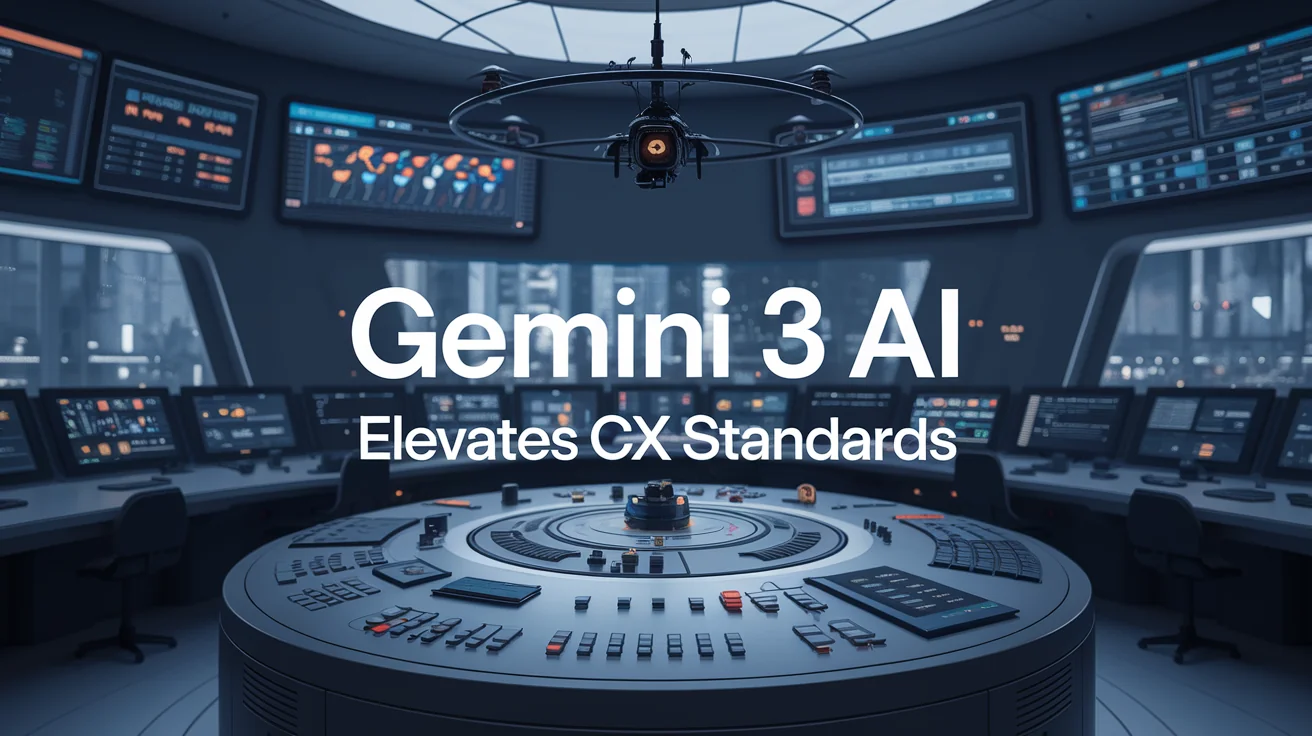Gemini 3 AI Elevates CX Standards

This past week, Google made headlines in the generative AI landscape with the launch of Gemini 3, marking a significant upgrade in its generative AI model offerings. The new model is integrated across Google’s entire product ecosystem, from AI Mode in its Search engine to developer platforms, demonstrating Google’s ambition to establish Gemini 3 as a pivotal component for delivering enhanced customer experiences.
The Transformation of AI Capabilities
Gemini 3 signifies a paradigm shift compared to its predecessor, Gemini 2.5. While the earlier version focused primarily on introducing basic reasoning capabilities and analytical tasks, Gemini 3 expands its features to encompass broader contexts, emphasizing agency in its outputs. The notable enhancement of reasoning across various modalities—including text, images, video, audio, and code—enables a seamless analysis of customer interactions. Marketers can now input multiple data sources in one query, significantly streamlining their workflow and increasing efficiency.
Multimodal Reasoning: A Game Changer for Analysis
One of the standout features of Gemini 3 is its “Deep Think mode,” achieving impressive results with a 93.8% score on the GPQA Diamond benchmarks. This advancement allows the model to analyze complex data without necessitating manual review by specialists, suggesting a shift toward democratizing data interpretation within marketing teams.
Generative Interfaces: Redefining Customer Interactions
Gemini 3 introduces “generative interfaces,” a feature that dynamically creates output formats tailored to user requests. This innovation allows customers to receive personalized travel recommendations, dynamic product comparisons, or interactive purchasing options seamlessly. It revolutionizes how customer-facing experiences are designed, moving from labor-intensive processes to instantaneous, AI-driven solutions.
Dynamic CX with Enhanced Customization
With features like “Dynamic View” and “Visual Layout,” Gemini 3 customizes experiences based on user demographics and preferences. It empowers marketing teams to create engaging, contextually relevant experiences without requiring extensive design resources. This dynamic ability establishes a new standard for customer interactions, fostering deeper engagement and satisfaction.
From Assistance to Authentic Automation
The advanced capabilities of Gemini 3 open avenues for automating customer experiences. By incorporating thorough reasoning and multimodal analysis, AI systems powered by Gemini 3 can not only guide users through step-by-step processes but also autonomously handle tasks ranging from research to task execution within customer service workflows.
Exploring the AI Potential with Antigravity
Accompanying Gemini 3 is Google Antigravity, an innovative development platform that leverages the model’s capabilities to enable the creation of autonomous agents. These agents streamline complex workflows, reducing the overhead traditionally associated with AI integrations. For marketing teams, this presents a valuable opportunity to deploy advanced automation without extensive engineering resources.
Competitive Landscape and Distinct Advantages
Gemini 3 enters a competitive space alongside models like OpenAI’s GPT-5 and Anthropic’s Claude Sonnet 4.5. It stands out with a 1 million token context window and native multimodal processing, positioning marketers to utilize its extensive functionality for customer sentiment analysis and more effective marketing strategies.
Practical Applications for Marketing Leaders
With the rollout of Gemini 3, marketing professionals are encouraged to start exploring its capabilities through Google’s offerings. Engaging with the free tier can help teams assess its potential—be it sentiment analysis, content optimization, or customer segmentation—ultimately refining strategies to accommodate the significant advancements presented by this model.
Gemini 3 marks not just an evolution in AI technology but presents itself as a potential collaborative ally in shaping customer experience strategies. As budgets tighten and user expectations rise, Gemini 3 may serve as a crucial resource for marketers seeking innovative solutions to enhance customer engagement.